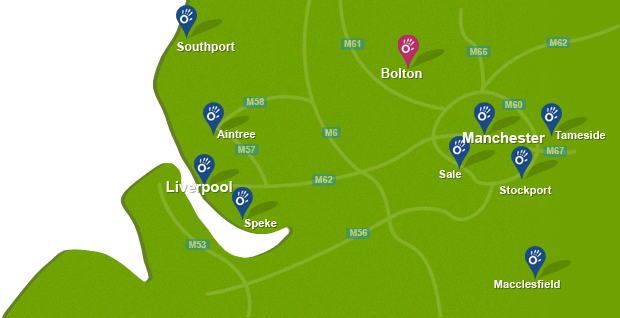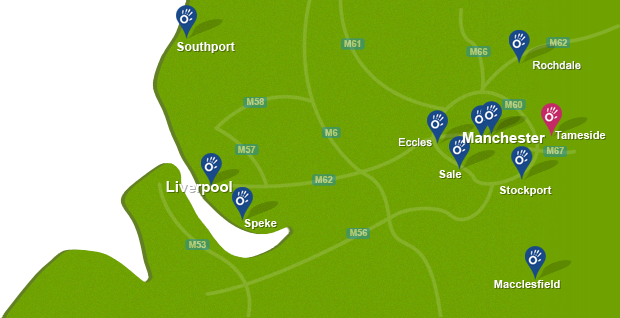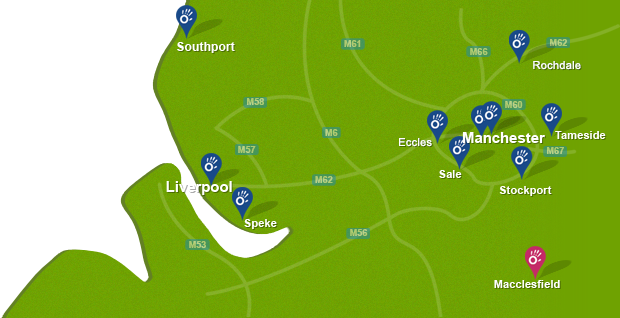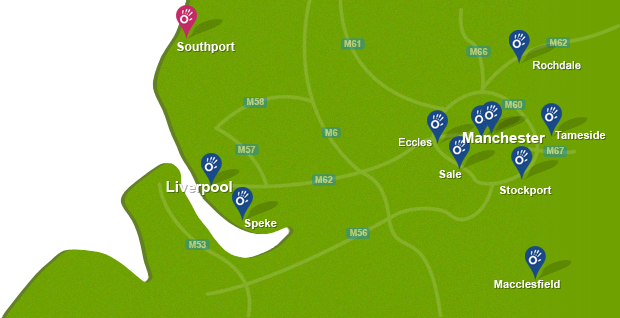What is a calcaneal stress fracture?
A calcaneal stress fracture is fracture of the heel bone (calcaneus).
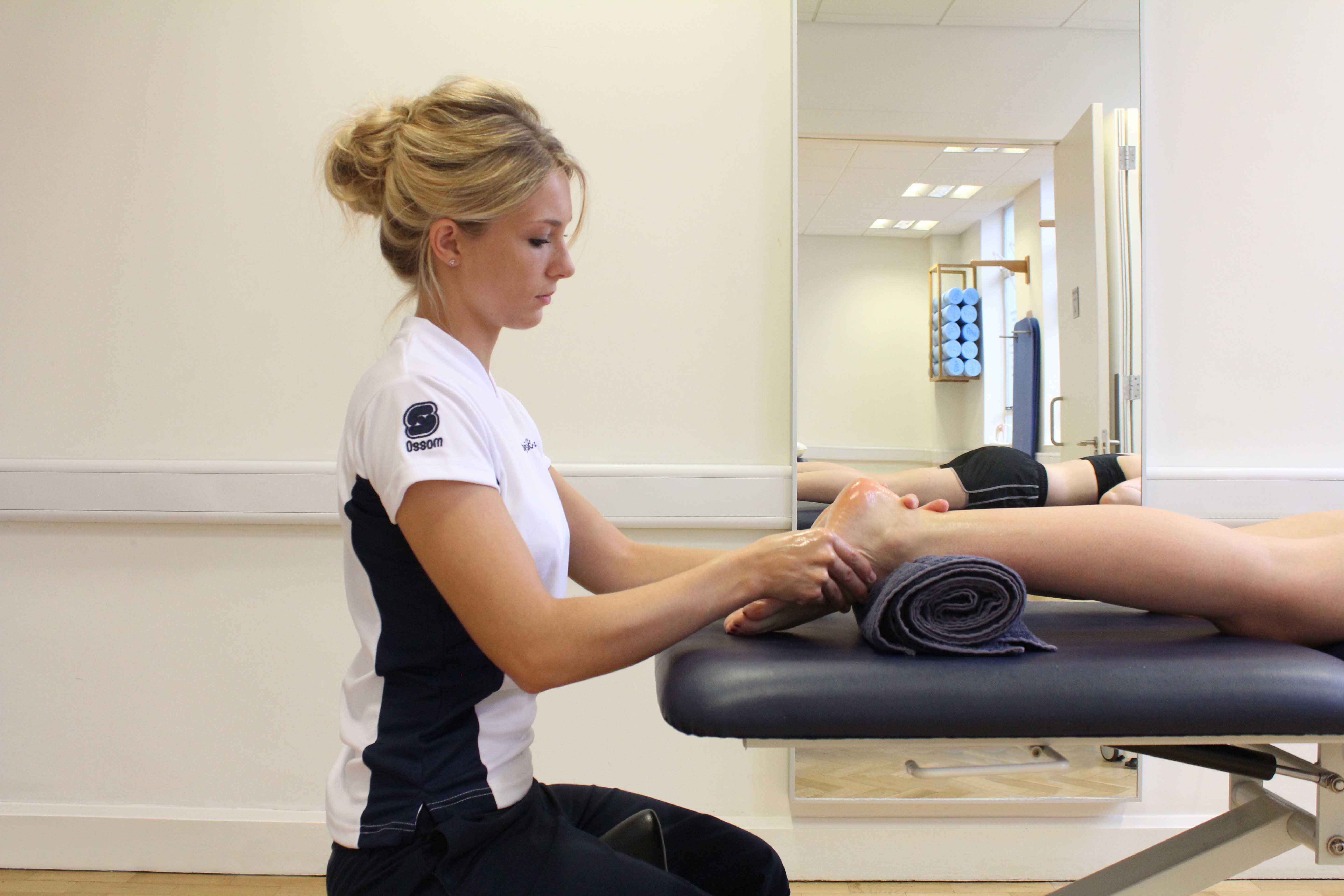 Above: Soft tissue massage and mobilisations of the bones and connective tissues in the foot by an experienced therapist
Above: Soft tissue massage and mobilisations of the bones and connective tissues in the foot by an experienced therapistWhat causes a calcaneal stress fracture?
Calcaneal stress fractures are usually caused by repetitive force going through the heel bone in weight bearing activities such as marching or running. Sometimes stress fractures of the calcaneus occur when people increase their activity or change their training conditions.
What are the symptoms/effects of a calcaneal stress fracture?
The main symptom of a calcaneal stress fracture is pain on either the inner or outer aspect of the heel bone that increases with impact activity such as marching, running, jumping or landing. Other symptoms may include night ache or pain on firmly touching or squeezing the heel bone.
Diagnosis of a calcaneal stress fracture
A physiotherapist or doctor will thoroughly assess your foot and ankle and ask you some questions about your activity levels to confirm a diagnosis.
Physiotherapy treatment for a calcaneal stress fracture
Physiotherapy treatment for a stress fracture of the calcaneus initially involves a period of rest which may involve protective weight bearing using crutches or wearing a protective boot.
Your physiotherapist at Manchester Physio will then use a combination of hands-on techniques and exercise to promote bone healing and get you back to your normal activities as soon as possible.
Physiotherapy treatment at Manchester Physio may include:
- Heat or Ice therapy
- Soft tissue massage to lengthen any tight muscles around the heel
- Joint mobilisation to reduce stiffness and pain
- Taping
- Advice about alternative exercises which place minimal weight bearing forces through the affected bone and to maintain fitness, such as swimming, cycling, and water running
- Hydrotherapy
- A graduated exercise program to strengthen the muscles in the legs, hips and glutes once weight bearing is appropriate
- Balance training
- Advice about insoles and orthotics
- Gait analysis
- Advice on a training program tailored to your sport to prevent re-injury
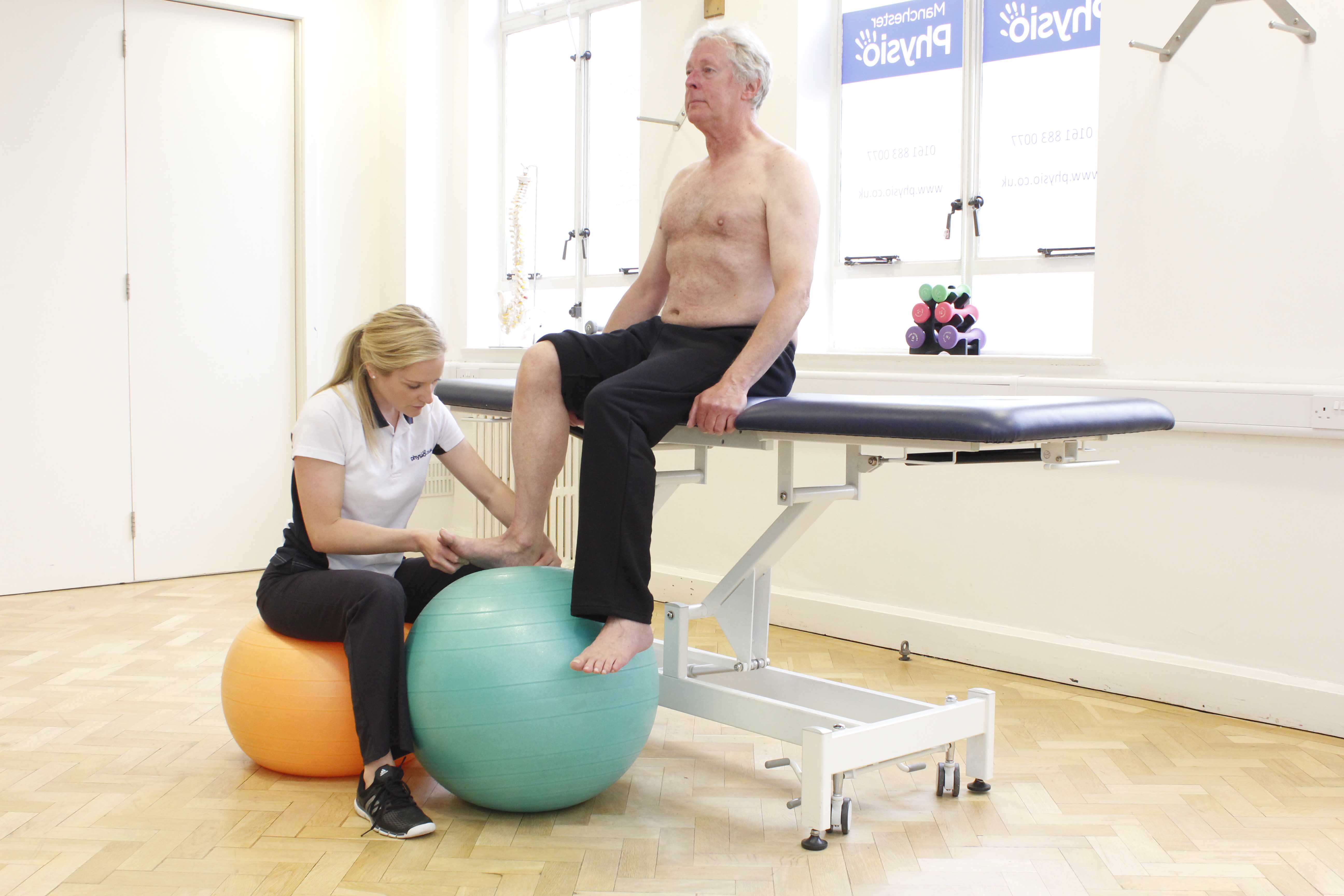 Above: Mobilisations and stretches of the foot and ankle by specialised therapist
Above: Mobilisations and stretches of the foot and ankle by specialised therapistPhysiotherapy treatment at Manchester Physio will not only speed up your recovery but also ensure get back to your sport and hobbies with confidence and success.
For more information on how physiotherapy can help you, or to book an assessment please call 0161 883 0077.



 0800 033 7800
0800 033 7800









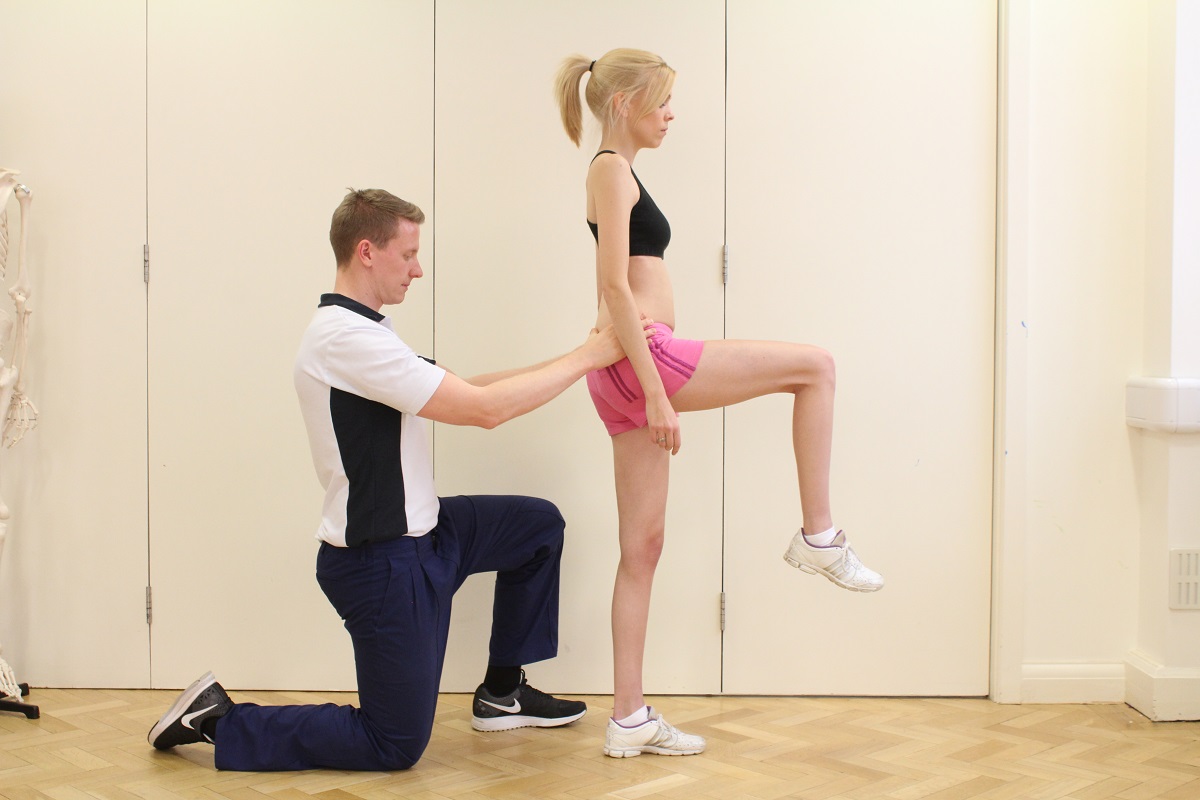

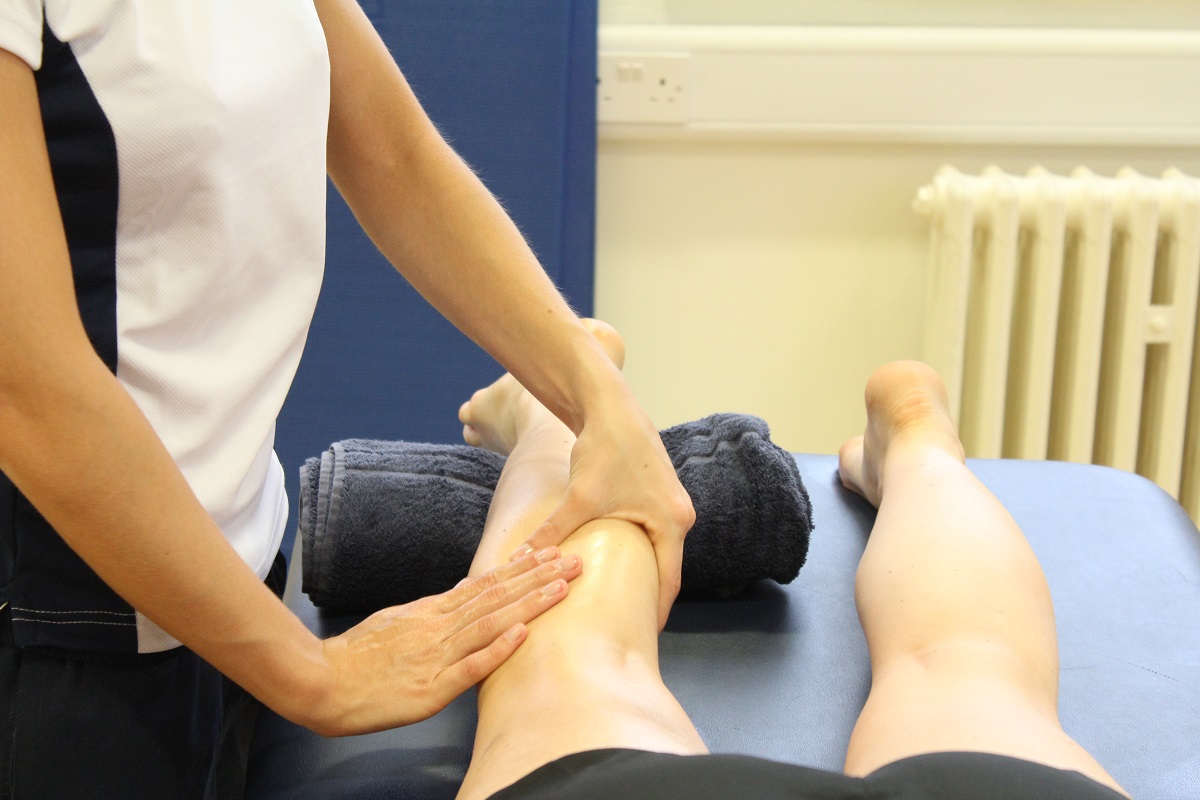



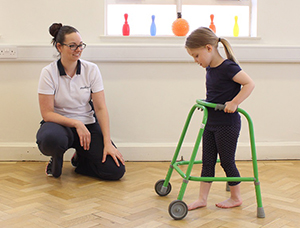
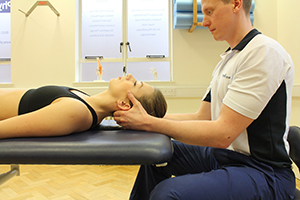
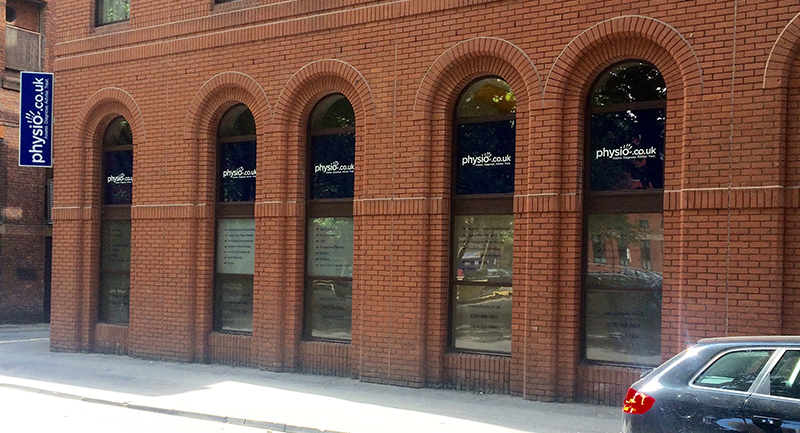
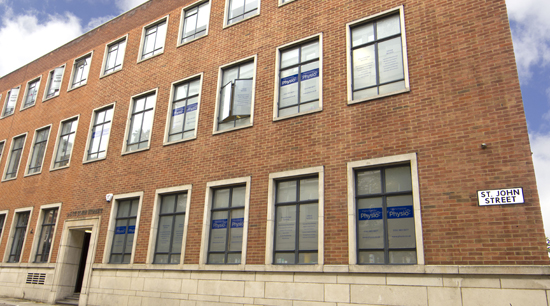


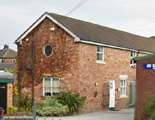
































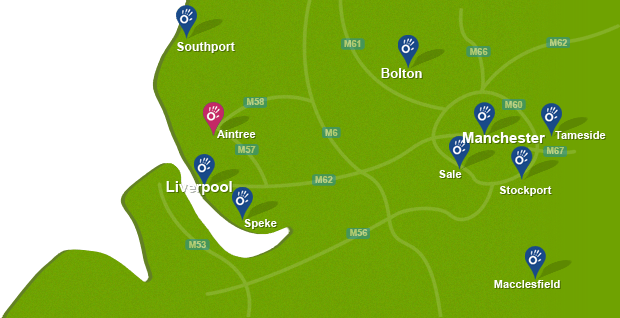

 f
f
